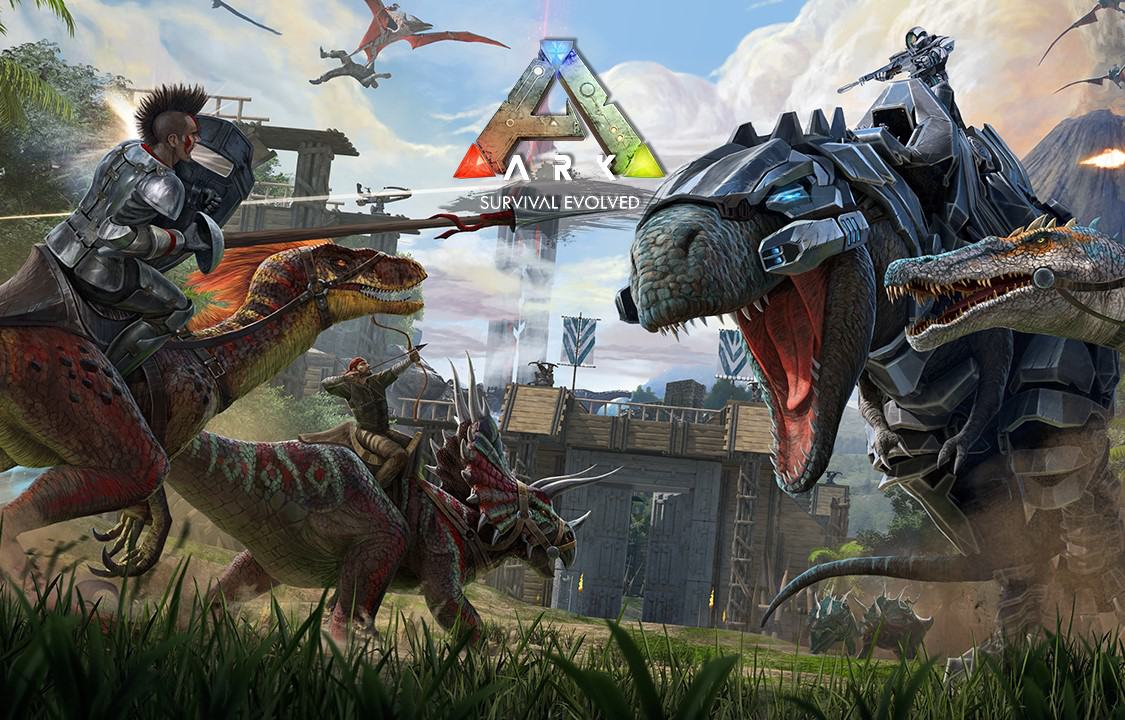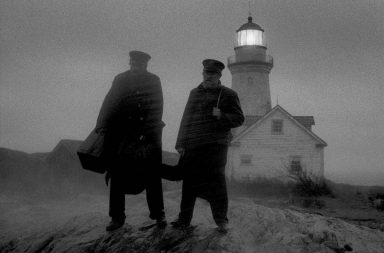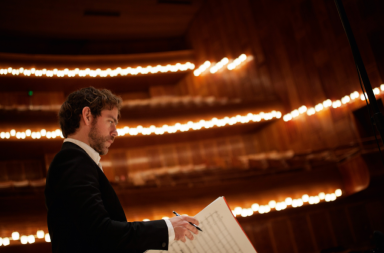Gareth Coker is one of the most acclaimed music composers for video games. Since the release of the platform game Ori and the Blind Forest in 2015, one of the highest-rated games on Xbox One, he was awarded several presigious awards such as the Academy of Interactive Arts & Sciences award for Outstanding Music Composition, and a recognition as an Associate of the Royal Academy of Music for his contribution to the music profession.
Gareth Coker’s sound is made of beautiful, memorable melodies combined with imposing atmospheres that completely enhance the sound and narrative dimensions of the games he composes for. His other credits in video game scoring include Primal Carnage, the Greek Mythology, Chinese Mythology and Norse Mythology editions of Minecraft, as well as several short films, documentaries and ads. This year, he released the soundtrack for the survival game ARK: Survival Evolved, and is currently working on the sequel to Ori and the Blind Forest, entitled Ori and the Will of Wisps.
Score It Magazine: First of all, could you please tell us more about your musical background, your inspirations, and how you became a composer for films, video games and different other media?
I’m classically trained, started playing piano at the age of 8 and then unintentionally ended up composing during my time improvising in school jazz bands, which led to the desire to create. I went to the Royal Academy of Music, then taught English in Japan for 3 years. This afforded me the opportunity to travel and to live and work in a completely different environment. The Japan chapter is a very important period of my life, as my time there influences my everyday approach to my work and how I deal with other people, as well as all the obvious cultural and artistic benefits of being surrounded by global influences! After Japan, I went back to school at the University of Southern California to continue my composition training. After graduating, it was then off into the wilderness and the trenches as is often the case with new creatives, working on various projects… And then one day, an email ended up in my inbox.
I read that you arrived on Ori and The Blind Forest very early on. How did you get on board?
The director of the game, Thomas Mahler, found me on ModDB.com. He emailed me because he liked one of my tracks. He said he had a prototype in development and that he would like me to take a look at it. I did, and being a gamer myself, I immediately identified that this prototype was very promising. Thomas said that if I composed the prototype for free and if the pitch to publishers was successful, I would score the game. Microsoft offered Thomas and Moon Studios the best deal, and the rest is history!
I imagine that you started working with visuals, preliminary artworks. How did you proceed with the creation of the music for the game? How much direction were you given, did the music you wrote change as the developers worked on the game?
The only direction I was given was, ‘Make it work!’. This is both creatively freeing and also a little daunting. One of the advantages of getting on board early, however, is that you can really get a feel for the game and start to establish all the little things that make an effective score tick. Tempo for me is a very important factor in effective game music. Ori is a game about movement (platforming) and thus finding the right tempo to match Ori’s speed was one of the first things I did. Beyond that, I am at my best when I have the visuals, as I think a very important part of the job is choosing the right instruments to sync with the visuals. The glue that ties all this together of course is the theme (or themes) that can be played across different areas with different instruments, but still keeping things familiar.
Can you tell us more about Aeralie Brighton, the vocalist whose ethereal voice we hear on Ori?
I found Aeralie on YouTube. And then after messaging her, discovered that she lived 10 minutes away from my house! We met up, did a test recording, and it was clear that her voice had a tone that would become a very important part of the score. It’s not a surprise to me that the most popular tracks on the soundtrack are those with her voice in it, such as ‘Light of Nibel’.
The music often echoes what we see on-screen. I’m thinking about the wooden percussion during the Ginso Tree sequence, we have pipes which evoke the wind when Ori travels through the skies, etc. How did you get the idea?
Honestly, it seemed like the most obvious solution to me at the time! It’s very easy to overthink things when writing music and sometimes the solution can be staring you right in the face. It just simply made the most sense to have wooden instruments being inside a tree. As for the wind/glide segment of the game, I hired an amazing flautist, Rachel Mellis, to play the Indian flute called ‘bansuri’ – which has a very unique sound that lent itself well to the gameplay.
The Misty Woods is slightly different in that I don’t have a special instrument for the area, however I do use a whole-tone scale. The unique characteristic of the whole-tone scale is that it is impossible to resolve the harmony, thus it feels like it is never-ending. Given that you are supposed to be lost in the Misty Woods – this seemed like the most appropriate compositional device to use!
When visuals, music, gameplay and design all come together, it makes it very hard to break the immersion. Music that doesn’t match the visuals can break the zone for the player, so on the music side I worked very hard to ensure that the tone of the music matched what the player saw on screen.
Someone might say, “But no combat music plays while the player is fighting enemies, how does that match what’s on screen?!” Well, if you look a little more closely, combat music in the game only plays when you have to vanquish an enemy. Most players of course will try to take out every monster because they give Spirit Light (experience points), but I felt that it wasn’t necessary to bludgeon the player with combat music in this case, because vanquishing monsters is not essential to progress the story. This concept becomes more fully realized further in the game once you get the ‘Bash’ ability and combine it with ‘Glide’ – you can quite easily avoid combat with the vast majority of enemies in the game. So, this is the one exception to the general rule, but in terms of the base aesthetic, you’ll always find that the music aesthetic matches the visual aesthetic.
There is a sequel in development, Ori and the Will of the Wisps. How are you going to tackle it (if you’re not already working on it)? Will you re-use some of the themes you created?
I can’t go into this too much for obvious reasons, but if you look at the trailer that we showed at E3, it re-uses three themes from the original game (‘The Sacrifice’, ‘Ori Lost in the Storm’, and ‘Light of Nibel’). The game is another title about Ori, so it would make sense to bring back Ori’s theme. As for new material, well, it’s pretty clear from the trailer that the owlet will have some part to play in the story.
I’m looking forward to revisiting the world, and fusing what I think people liked about the original score, but take it to a new place that fits the story we’re trying to tell and the world we’re trying to create.
For your recently released score to the video game ARK: Survival Evolved, I read that you used a 93-piece Philharmonia Orchestra at Abbey Road Studios. How did you find working with such an ensemble?
This ensemble was far bigger than any that I’d worked with before, so first of all, it was a real test of everything that I’d learned and experienced to this point. I’m very fortunate that I have an excellent core team alongside me. My conductor, Alexander Rudd, has conducted all my scores for me since we first met at the USC. The role of a conductor at a recording session is very demanding. It’s a mix of communication/trouble-shooting, and being able to keep a large number of people – the players – engaged. Alex is brilliant at all three, which allows me to focus only on what I’m hearing being performed. Then, Zach Lemmon is my second pair of ears in the booth and a general multi-tasker; he has an amazing ability to spot potential issues before they might happen, and also offer suggestions that I might not have considered, and that are easy to implement. Zach also studied with me at USC. Between the three of us, we’ve now got a wealth of experience and that makes working with such an ensemble much easier – even though we feel like we learn something new every time! 93 players and recording around 150 minutes of music in 3 days is a gargantuan task but we somehow pulled it off.
The Philharmonia Orchestra were a joy to work with. Any nerves I had were completely assuaged after the first take of the main theme, which was the first piece we recorded. Everything was smooth from start to finish on what was likely quite a physically demanding score for them to play, given the amount of action music.
What drew you to ARK: Survival Evolved? Can you tell us a bit about your composition process on this project?
I was brought on a few months before their Early Access release. The first assignment given to me was to come up with a main theme. Looking at the scope of the game, which combines the survival genre with building and of course, the dinosaurs, it was clear I was going to get to write something huge and epic – which for the most part was quite different from Ori, which I had just finished.
It was extremely fortunate that the very first version of my main theme was what you hear in the game now. I think it ticked several boxes for Studio Wildcard, who had essentially given me an open brief and also said that they didn’t want it to sound like John Williams’ Jurassic Park. It was important for them to have a recognizable main theme and to help evoke a sense of adventure with an element of strife and survival.
Most of the music was born from this main theme; you’ll hear a version of the theme in several of the combat cues. The combat cues represent each environment in the game (jungle, beach, mountain, desert, etc.) and there are light/heavy versions for each, and also a version for day and night. The end-game of ARK takes a science-fiction twist so it allows me to introduce a lot more synthesized elements. Forgive the pun, but the score definitely ‘evolves’ as you progress through the game!
How does this project differ to other scores you have created in the past?
The main difference is that this game was in Early Access, which is a game that is in open development, whereby the public can play the game in its alpha and beta stages. They buy the game with the disclaimer that the game is unfinished. This affects music in a couple of ways: 1) virtual mockups of your music will be heard by the audience, even if the music is going to be recorded live, and 2) the nature of Early Access and the audience having early access to music, means that you have to consider how you develop and change the music.
I’ll expand a little bit on the 2nd point. When we started the game in Early Access, there was only one piece of combat music for day, and one piece of combat music for night, regardless of the environment you were in. This was back in June 2015. The next combat music update did not take place until February 2017. By this time, ARK had a huge audience, at least 6 million players, and a concurrent user count on PC that was consistently in the Top 10 on Steam. Players had become used to the way the music worked and the music cues that played in the June 2015 version of the game. When we changed things in February 2017, it changed the way combat music played in the game because we introduced all the environmental themes. This took a period of adjustment from the community and there are, still to this day, people who would prefer to use the original mocked up music even though the general consensus is that the final Abbey Road versions are what people enjoy! When players put so many hours into a game, they get used to – and attached to – what they hear. We see this in other games too. For example, Minecraft is changing its textures in consistency and look, and while objectively it’s better, there’s a nostalgia element to the original textures, so I imagine there will be a period of adjustment. The same applies to remasters. Remasters don’t always turn out better, they are different, and probably great for a new audience, but for the original audience, there is the potential for the ‘feel’ of the original not to be captured.
To summarize, in film scoring, there can be ‘temp’ love when a director gets attached to a piece. In Early Access game scoring, we essentially have a case not of temp love, but ‘mock-up love’ (or early version love). I’m doing a talk at the Game Developers Conference which will act as a post-mortem on this, and steps composers can take to solve the unique challenges and issues that come up in Early Access scoring.
You’ve worked on a lot of other non-gaming projects too. How does working on a game compare to working on other sorts of media?
Obviously the main difference is linear storytelling versus non-linear storytelling, but also the way a game is made can be very freeform compared to a film or TV show which generally has a set schedule. Games can ‘reshoot’ at any point, so you can constantly tweak in quite a major way. Whereas in films, once your footage is shot, that’s what you have to work with. Finally, the scope of games can be much greater. We have games that last a huge length of time, hundreds of hours. Ori and the Blind Forest is considered a ‘shorter’ game and it takes the average player 10-12 hours to finish! So, simply put, you get to write a lot more music!
Do you think video game soundtracks as a whole are more popular now than they were a decade ago?
I think they’ve always been popular, but now they are getting increased visibility because gaming is more popular than ever before. Also, the quality of game scores is easily matching film and television, and there are no limitations anymore. So there is no excuse for a lack of quality in terms of production anymore, and as a result, there is little to differentiate a game score from a film/TV score in terms of production quality. This is illustrated by the huge number of game concerts that are popping up all over the globe. Radio stations such as the UK’s Classic FM have a dedicated show to video game music and this introduces the world of games to a different audience as well as giving a platform for game music to be heard on radio. Game soundtracks do quite well in terms of sales and regularly feature in the top 10 on iTunes and sometimes the Billboard charts too.
I firmly believe that we are still 5-10 years away from gaming reaching anything like its peak, its ‘golden era’. We are still using, and technology is evolving all the time. So while things may seem popular now, we still have a way to go, and that’s extremely exciting.
What can you tell us about your upcoming projects?
There’s one more ARK expansion to work on in addition to the two that I’ve already composed (Scorched Earth and Aberration). I’m very fortunate that the team at 4JStudios and Minecraft keep asking me back to write more music for them so I expect there may be something in 2018 too. However, the vast majority of my attention next year will be devoted to scoring Ori and the Will of the Wisps.
Interview prepared and conducted by Marine Wong Kwok Chuen and Priya Matharu
Edited by Valentin Maniglia




